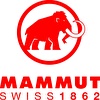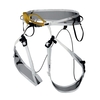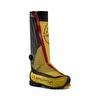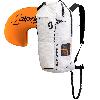International Master’s Course in Mountain Medicine, the final report by Doctor Luigi Festi

 1 / 4
1 / 4 archivio Master Medicina di Montagna
archivio Master Medicina di Montagna
I still find it hard to believe after little more than a week, that I actually succeeded in realizing not just my dream but a project that is important and unique in the world and one that had seemed too daunting a task for many others before me. Also, I still feel the deep emotion given me by these great mountaineers, or rather, by these great men which they have proven to be, namely, Simone, Ueli, Hervé and Marco. One could sit and listen to them talk about the mountains and about life ad infinitum.
For the first time, I believe, experts of international fame in the field of medicine were brought together with writers, journalists, directors, rescue workers, people from the Alpine Club and well known mountaineers with worldwide experience. This made it possible for the 14 doctors who came from every part of Italy to acquire theoretical grounding and practical training on the field as well as in the operating theatre or in the emergency room or in a mountain medicine clinic, almost unparalleled at an international level. But not only this. It also brought together experts from different sectors who often have little in common with one another and involved them all in the same theme, an appreciation for the mountains, the real inspiration behind the project.
Let me first of all thank the students who enrolled in this Master’s course. We established a good rapport of mutual respect, of friendship and of constant collaboration which enriched me personally and encouraged me in difficult moments. They helped me realize my dream which was all the more difficult given the serious crisis we are experiencing that is economic, cultural and ethical particularly in Italy.
Moreover, I wish to thank once again in the prestigious pages of Planetmountain, the sponsors who believed in us and took up the challenge, as indeed did I. They are: Mountain Hardwear, Scarpa, AgustaWestland, Beta80, and again, Johnson&Johnson, a partner in the daily activity of a surgeon, and Balmelli Sport of Lugano. The North Face helped us greatly by allowing some of the strongest athletes on their team to participate. For one day (but probably always in their alpine life), they became “professors”, truly competent and authoritative professors. I hope they will continue to give me a hand in future courses. In the same way, I hope others will join us, motivated by our same passion, with the same courage and awareness of the importance this medical and cultural training will have, above all, in the years to come.
Next year this post graduate Master’s Course in Mountain Medicine will begin at the end of May. I will take to heart the experience gained by putting even greater emphasis on fieldwork in the mountains, although the 10 days spent this year are not nothing. I will also increase the collaboration network and confirm training with foreign alpine rescue units such as REGA and Air du Glacier and, I hope, Air Zermatt, as well as with the Guardia di Finanza in Italy which took part this year together with the Alpine Rescue of the Italian Alpine Club (CNSAS). Moreover, the course will be organized so that students who come from abroad, from Europe and non-E.U. countries can also participate.
In the preamble of the presentation of the Master’s Course there is a reference to mountain climbing with maximum safety. The events of these past few months, some of which were tragic, have confirmed the necessity of greater prevention and safety in the mountains. It is evident that mountaineering has become more and more a mass sport, but there are those who do not always have the necessary physical preparation and knowledge to do it. I therefore think that this Master’s Course is fundamental and can be a determining factor in increasing the speed and efficacy of a rescue, just as adequate medical preparation for those accompanying mountain goers, here I am referring to alpine guides, is also necessary.
The doctor therefore as an additional leader, as second leader, as a necessary reference point and perhaps one that is irreplaceable, as confirmed by incidents recounted by Simone and Ueli. Now that we have telemedicine and distance medicine, I think the presence of a doctor on location is fundamental because he or she can act with clinical expertise and with the authority that comes from good medical and mountaineering training.
Whether they be doctors on mountain expeditions or, more simply, required to answer such frequently asked questions as: “Doctor, can I go mountain climbing? What altitude can I go to? Doctor, I’m going to Nepal. How should I prepare myself? What problems do you think I could encounter? Remember, I have problems with my lungs!” These doctors who have studied mountain medicine could represent the medical future of mountaineering and they will do it with the necessary knowledge not only of medicine but of complex problems connected with climbing such as safety manoeuvres. They will be strengthened by having the experience of those who approach mountain climbing in a professional manner. In this regard, I would like particularly to thank yet again Silvio Gnaro Mondinelli and Matteo Piccardi of the Ragni of Lecco as well as the prestigious Alpine School of the rather small CAI of Malnate. Their expertise and recommendations will guarantee to the students the training and hence the authority necessary for a correct handling of situations and the observance of the group’s fundamental rules.
There are two more aspects that I must underline. Firstly, the emphasis that was placed on the “culture” of the mountains: the doctor who works in an alpine environment must not be like a fish out of water; he can’t not feel the subtle spirit, the thin air described by John Krakauer, which is not that rarefied air of 8,000 metre peaks but also the air of our mountains, of our Alps and our Apennines. It’s the air that you breathe when you feel free, in the conscious awareness of freedom that we rediscover every time we venture into the mountains, among the evergreens, the sun, the frost, in the snow and the ice, resting fingers on the rock, listening to the silence or the advance of the crampons, or the clanging of the gear, or also just contemplating the sunset. A doctor without a soul cannot be a good doctor or a good surgeon, all the more if he is performing in a unique ambience such as “ours”.
The final aspect that I would like to recall and of which I am proud is the full support that was given to the Master’s Course by the Università dell’Insubria and by its outgoing Chancellor, Prof. Renzo Dionigi, my instructor and mentor and a world famous surgeon and also by the European Academy (EURAC) of Bolzano, in particular by Hermann Brugger. To have brought together two cultural entities seemingly distant from one another but so similar in their common spirit of innovation and research and to have succeeded in engaging a person of Hermann’s stature in my project - this has been my greatest joy.
My thanks again to everybody.
Luigi Festi
Director of the post graduate Master Course in Mountain Medicine.
Information at: www.mastermedicinadimontagna.com,or contact luigi.festi@ospedale.varese.it.



 Copia link
Copia link























